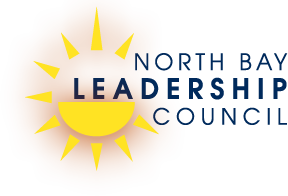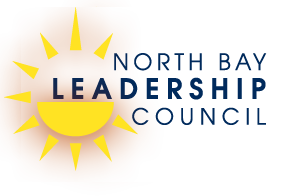When given the option of research projects to support, Buck Impact Circle members recently pooled their resources and chose to invest $120,000 in research aimed at exploring the protective effects of a ketogenic diet on the complications of diabetes.
“The Impact Circle is one of the most exciting and rewarding programs at the Buck,” says President and CEO, Eric Verdin, MD. “It brings donors close to the scientists they support and it provides invaluable start-up funds for early stage research projects.”
Here’s how the program works: Each year Impact Circle members are presented with a number of projects that focus on “dream big” research projects – collaborative efforts between Buck labs that are not far enough along to qualify for government funding. Faculty “pitch” their projects to the Impact Circle, and members vote on which project to support. A $5,000 donation guarantees one vote and is the entry point for the Impact Circle; this year a Buck Trustee, who wishes to remain anonymous, matched contributions from new members who joined prior to final voting, enabling the group to hit an all-time high in support.
“My wife and I so enjoy being part of the Impact Circle,” said Dayton Coles – he and his wife Sheri are long-time members of the group. “We get to know the scientists and it’s a thrill to be able to make a difference in their work.” Past Impact Circle projects have led to successful applications for federal funding and have resulted in high impact publications. “There’s great comradery in the group and it’s one of the best ways to keep on top of the latest research,” he said.
This year’s project could lead to new therapeutics
This year’s Impact Circle project is a joint venture between the Kapahi and Verdin labs, focusing on the complications of type 2 diabetes. The work could lead to new therapeutics for conditions including cardiomyopathy, neuropathy, chronic kidney disease and Alzheimer’s.
The science is aimed at AGEs (advanced glycation end products). AGEs are toxic molecules that form when the reactive by-products of sugar metabolism attach themselves to proteins and DNA. AGEs affect nearly every cell type and are a normal byproduct of metabolism – they are not usually a problem for those who eat a healthy diet. As might be expected, AGEs are a real issue when blood sugar levels are chronically elevated, as in diabetes. The increase of AGEs may explain why diabetes is one of the biggest risk factors for Parkinson’s and Alzheimer’s disease. And it doesn’t help that AGEs accumulate with aging.
A perfect collaboration
 The project is a perfect marriage between the two labs. Working in simple animals, the Kapahi lab has developed unique expertise in AGEs, and the Verdin lab has special know-how in mouse metabolism. “We are very excited to move our basic research in worms and flies into mice,” said Buck faculty Pankaj Kapahi, Ph.D. “We are very grateful to the Impact Circle for backing a project that will provide evidence to support clinical trials of metabolic interventions to prevent or maybe even reverse diabetic complications.” Scientists in the Kapahi lab showed that enhancing fat metabolism reduced AGEs, reduced neurodegeneration and extended lifespan in the simple animals. Significantly, researchers identified the cellular pathway involved in both sensing and repairing AGEs.
The project is a perfect marriage between the two labs. Working in simple animals, the Kapahi lab has developed unique expertise in AGEs, and the Verdin lab has special know-how in mouse metabolism. “We are very excited to move our basic research in worms and flies into mice,” said Buck faculty Pankaj Kapahi, Ph.D. “We are very grateful to the Impact Circle for backing a project that will provide evidence to support clinical trials of metabolic interventions to prevent or maybe even reverse diabetic complications.” Scientists in the Kapahi lab showed that enhancing fat metabolism reduced AGEs, reduced neurodegeneration and extended lifespan in the simple animals. Significantly, researchers identified the cellular pathway involved in both sensing and repairing AGEs.
The Verdin lab brings its experience studying ketogenic diets to the project. Ketogenic diets are extremely low in carbohydrates and high in fats – in mice they shift metabolism from sugar to fat. The Verdin lab has already observed that a ketogenic diet extends lifespan and preserves cognitive function as mice age – this project will take it to the next step. “The Impact Circle support will allow us to understand why a ketogenic diet works,” said project co-leader John Newman, MD, PhD. “We’ll be able to measure the accumulation and clearing of AGEs and identify molecular targets for drug discovery that could prevent dementia in both diabetics and non-diabetics. This work in mammals is an essential step on the way to the clinic.”
The skinny on ketogenic diets
 Low carbohydrate, high fat ketogenic diets promote the formation of ketone bodies which are created in the liver and pass into the brain, replacing glucose as an energy source. The ketogenic diet is currently used to control epileptic seizures in children. Its neuroprotective effects in mice have piqued the interest of some consumers who want to get a leg up on maintaining brain health.
Low carbohydrate, high fat ketogenic diets promote the formation of ketone bodies which are created in the liver and pass into the brain, replacing glucose as an energy source. The ketogenic diet is currently used to control epileptic seizures in children. Its neuroprotective effects in mice have piqued the interest of some consumers who want to get a leg up on maintaining brain health.
But ketogenic diets are hard to follow and maintain; this project may help provide some help in that area. Newman, who is also a practicing geriatrician at the San Francisco VA Medical Center, will test compounds that promote ketone body production in both diabetic mice and normal aging mice. “We want to see if these drugs or ketone body compounds act as signals that turn on fat metabolism and clean AGEs. Maybe the treatments will be sufficient to provide protection so that going on a stringent diet won’t be necessary,” he said.
In the meantime, avoid AGEs!
Both Kapahi and Newman say keeping blood sugar at a healthy levels will go a long way to protect against production of toxic AGEs. But both warn that AGEs can also be consumed directly in the food we eat. Charred meat is loaded with AGEs – as is almost any food that has been fried or heated to a high temperature. (John Newman aptly compares AGEs to soot left from a wood burning fire.) Unfortunately, AGEs taste good, making them hard to resist. Kapahi says it’s a dilemma for both humans and for those simple animals. “When we give worms options to either eat their regular food or AGEs, they always go for the AGEs.” he said.










